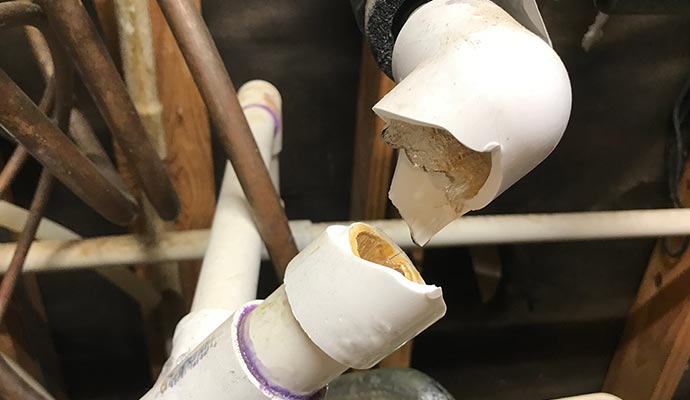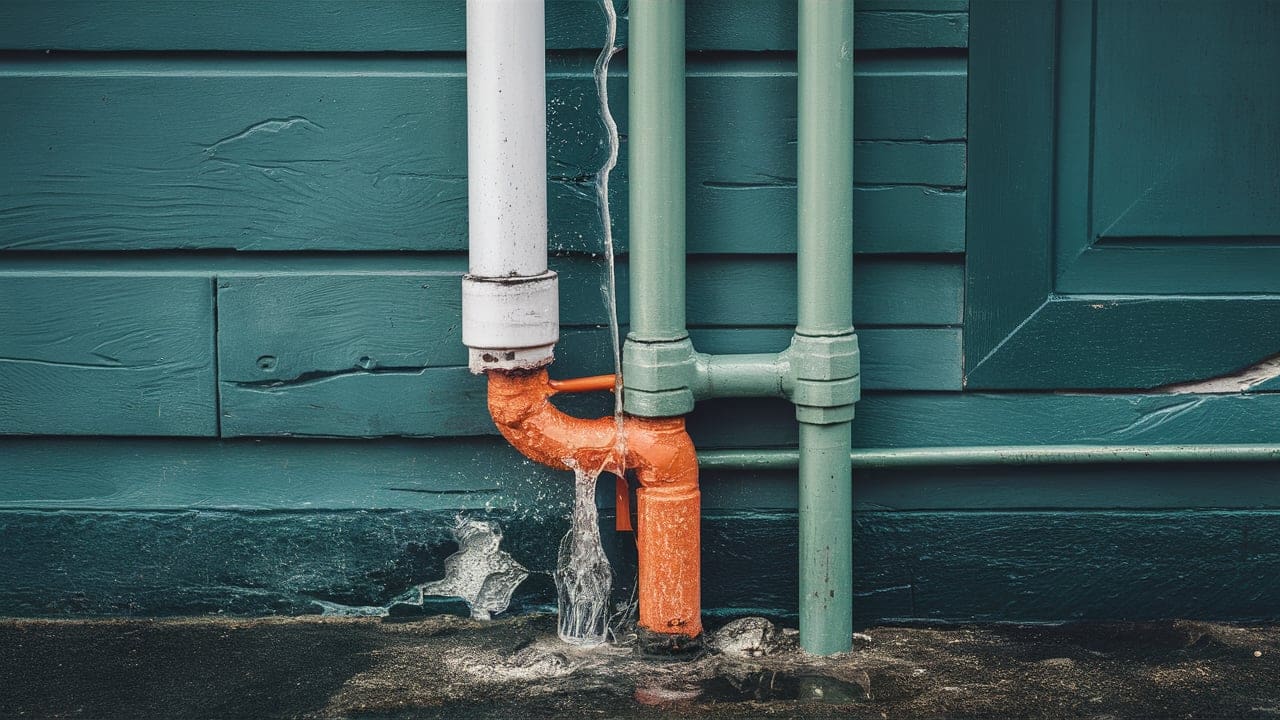Burst Pipe Insurance Claims: What You Need to Know for Water Damage Coverage
Burst Pipe Insurance Claims: What You Need to Know for Water Damage Coverage
Blog Article
Stopping Ruptured Water Lines: Important Tips to Safeguard Your Pipes
Protecting against burst pipes is an important problem for home owners, especially throughout chillier months when the risk of freezing is increased. Applying critical actions such as proper insulation, regular examinations, and preserving regular interior temperatures can significantly minimize the chance of pipe failing. Furthermore, recognizing emergency situation procedures equips homeowners to react quickly to potential pipes concerns. Numerous are not aware of the particular susceptabilities that their pipelines may encounter. Exploring these susceptabilities can offer vital insights into safeguarding your pipes system successfully.
Understand Pipeline Vulnerabilities
Recognizing pipe susceptabilities is essential for effective pipes upkeep and protecting against costly damages. Numerous factors add to the sensitivity of pipelines to ruptureds, consisting of material make-up, age, and ecological problems. Older pipes, specifically those made from galvanized steel or polybutylene, often degrade in time, bring about enhanced risk of leaks and tears.
Temperature level variations can also dramatically influence pipe honesty. In colder climates, water entraped in pipes can freeze, expanding and applying stress on the pipeline walls, which may inevitably bring about a ruptured. Furthermore, high water stress can strain pipelines, especially at joints and bends, increasing the probability of failure.

Insulate Water Lines Correctly
Proper insulation of pipes is vital for stopping freezing and succeeding ruptureds throughout winter (burst pipe). Insulating your plumbing system successfully safeguards against temperature level drops that can lead to costly damages. Begin by identifying susceptible areas where pipelines are exposed to outside temperature levels, such as basements, attics, and outside walls
Usage foam pipe insulation sleeves or cover insulation tape around these areas to offer a protective obstacle. Guarantee that all sections of the pipelines, particularly those with restricted warmth direct exposure, get appropriate insulation. Pay unique attention to fittings and joints, as these are more susceptible to cold.
When insulating, it's vital to select products that meet neighborhood building ordinance and are proper for the certain environment. For example, fiberglass insulation is commonly recommended for its thermal resistance residential properties - burst pipe. Furthermore, consider using heat cables or tape in extreme problems, which can be plugged in to provide supplementary heat
Frequently examine protected pipes for any kind of indications of wear or damages, as endangered insulation can diminish its performance. By taking these proactive procedures, you considerably minimize the threat of pipeline ruptureds, making sure a reliable plumbing system throughout the wintertime months.
Maintain Constant Temperature
A steady indoor temperature is vital for protecting against ruptured pipes during the visite site frigid months. When temperatures drop, water within pipelines can freeze, producing and expanding pressure that may ultimately create the pipelines to burst.Making use of a programmable thermostat can help take care of interior temperatures efficiently, ensuring that rooms with pipes remain cozy even when the residence is unoccupied.
This minor circulation of water can stop cold by easing stress within the pipes. By applying these methods, home owners can dramatically reduce the danger of pipeline bursts and guard their pipes systems versus the harsh wintertime elements.
Frequently Examine Pipes
Routine evaluations of pipes systems are important for preventing ruptured pipes and preserving general home integrity. Routine checks allow house owners to determine prospective concerns before they intensify right into pricey fixings or significant water damages. Throughout these examinations, it is important to check out noticeable pipes for indications of corrosion, leaks, or use. Pay special attention to areas prone to cold, such as cellars, attics, and outside walls.
In addition, inspecting joints and connections is vital, as these points are commonly prone to leaks. Property owners need to likewise assess water stress degrees, as too much pressure can stress the pipes system and enhance the danger of pipeline bursts.
Take into consideration organizing professional plumbing assessments at least when a year, particularly prior to winter, to guarantee your system is prepared for chillier temperatures. By being positive in your technique, you can guard your home against the disruptive and expensive repercussions of ruptured pipelines.
Know Emergency Situation Treatments
Recognizing emergency procedures is important for every house owner, particularly after read more performing normal pipes inspections. Being prepared for a plumbing emergency can considerably minimize damage and save expenses.
Next, keep essential tools handy. A pipes emergency set must include a wrench, plunger, and towels, as well as a flashlight and a container for little leakages. Additionally, take into consideration having the get in touch with details for a relied on plumber easily offered, must the scenario escalate past your control.
If you spot a her explanation leakage or burst pipeline, immediately shut off the water supply and notify your plumbing professional. Furthermore, document the damage with photos for insurance purposes. burst pipe. Understand the indicators of potential plumbing concerns, such as unusual water pressure variations or damp spots on wall surfaces
Inevitably, proactive expertise and swift action are important in taking care of plumbing emergencies, ensuring your home continues to be protected and lessening possible damages.

Final Thought
In final thought, preventing ruptured pipes requires a multifaceted approach that consists of understanding pipe susceptabilities, proper insulation, maintaining constant indoor temperatures, routine inspections, and knowledge of emergency situation treatments. By implementing these crucial methods, the risk of pipes failings can be significantly lowered, consequently ensuring the longevity and effectiveness of the plumbing system. Aggressive actions not only safeguard versus possible damage but additionally add to general water conservation and the security of residential property.
In chillier climates, water caught in pipes can freeze, broadening and applying stress on the pipeline wall surfaces, which might ultimately lead to a burst. When temperature levels drop, water within pipelines can ice up, expanding and creating stress that may eventually create the pipes to burst. By carrying out these strategies, house owners can substantially reduce the risk of pipeline ruptureds and safeguard their plumbing systems versus the harsh winter months elements.

Report this page